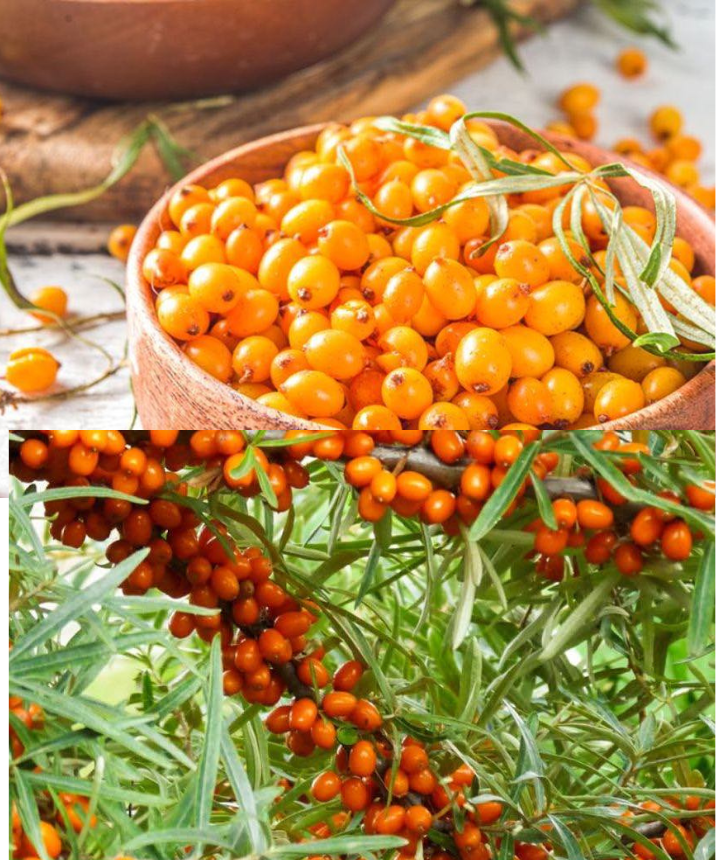Sea buckthorn, scientifically known as Hippophae rhamnoides, is a plant that has been valued for its nutritional and medicinal benefits for centuries. Originating from cold regions of Europe and Asia, its fruits, which are small orange berries, are highly nutritious and loaded with antioxidants, vitamins, and minerals. In this article, we’ll explore the multiple benefits of sea buckthorn and how you can incorporate it into your diet to make the most of its health properties.
- Rich in essential nutrients: Sea buckthorn berries are an excellent source of essential nutrients for health. They are rich in vitamin C, vitamin E, vitamin A (in the form of beta-carotene), flavonoids, omega-3, omega-6, and omega-9 fatty acids, as well as minerals like iron, calcium, and potassium.
- Powerful antioxidant: Sea buckthorn is known for its high antioxidant content, which helps combat damage caused by free radicals in the body. The antioxidants present in sea buckthorn berries may help reduce the risk of chronic diseases, protect cardiovascular health, and strengthen the immune system.
- Skin health benefits: Due to its vitamin E content and omega fatty acids, sea buckthorn is beneficial for skin health. It can help promote wound healing, improve skin elasticity, and combat signs of aging such as wrinkles and dryness.
- Support for cardiovascular health: The omega fatty acids present in sea buckthorn may help maintain healthy blood cholesterol levels and reduce the risk of cardiovascular diseases. Additionally, the antioxidants and flavonoids present in the berries may help protect the heart and blood vessels from oxidative damage.
- Anti-inflammatory properties: Sea buckthorn has been traditionally used in herbal medicine to treat inflammatory conditions such as arthritis and gastrointestinal inflammation. Studies have shown that sea buckthorn extracts may have significant anti-inflammatory effects, making them useful for relieving inflammation and pain.
How to incorporate sea buckthorn into your diet: Sea buckthorn can be consumed fresh, but due to its sour and astringent taste, many people prefer to consume it in the form of juice, jam, syrup, or supplements. It can also be used to make tea, smoothies, sauces, and salad dressings. Additionally, sea buckthorn leaves and branches can be used to make herbal infusions or extracts.
In summary, sea buckthorn is a highly nutritious and versatile fruit that offers a wide range of health benefits. By incorporating sea buckthorn into your diet regularly, you can harness its antioxidant, anti-inflammatory, and cardiovascular properties to maintain optimal health and improve your overall well-being.
